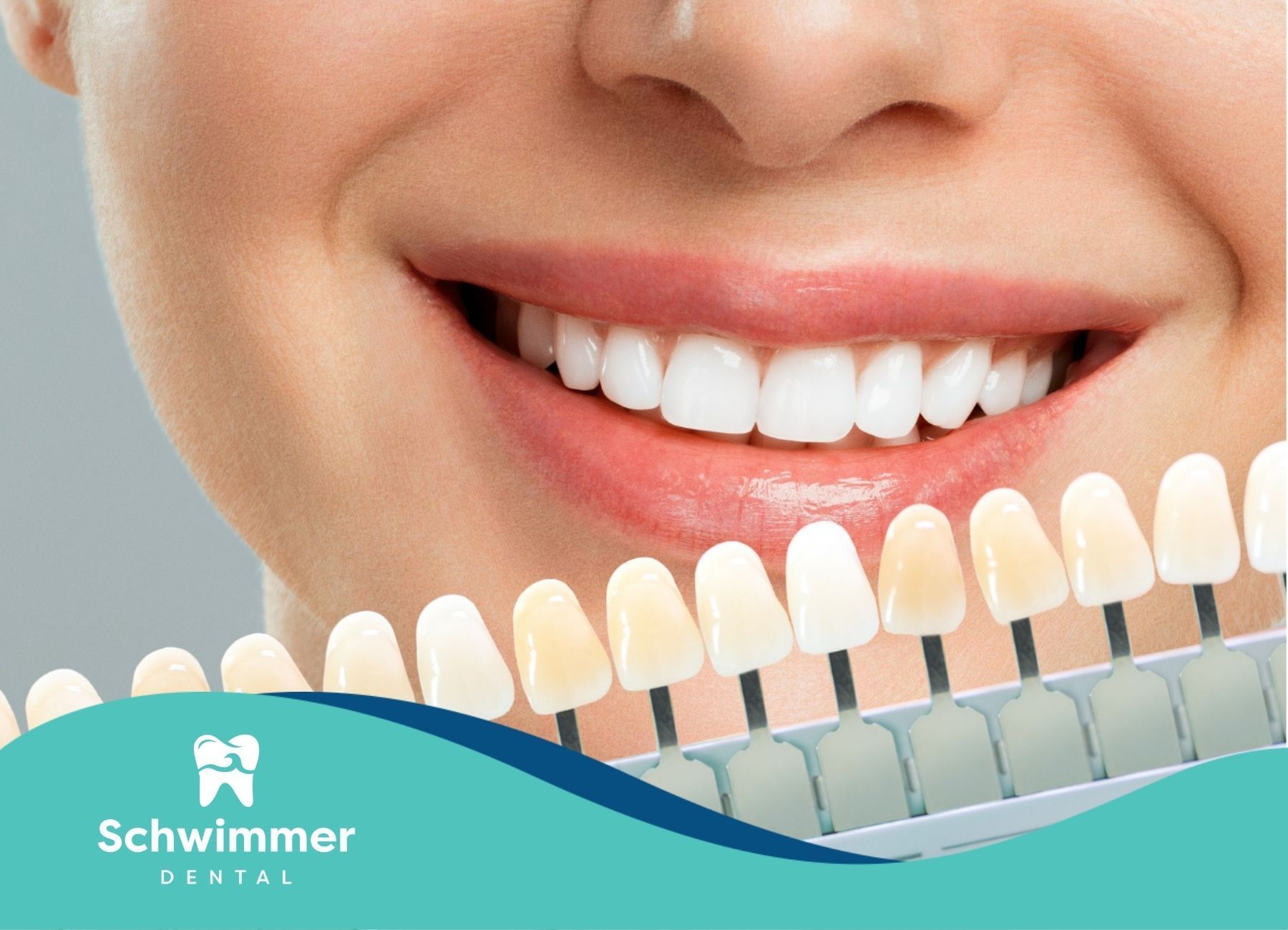White Spots on Teeth: Causes, Prevention & Treatment
Understanding White Spots on Teeth
Noticing white spots on your teeth can be concerning, especially if they stand out against the natural color of your enamel. While these spots may seem harmless, they can indicate underlying dental issues that require attention. Understanding the causes, prevention methods, and treatment options can help you maintain a healthy smile and prevent future discoloration.
In this guide, we’ll explore what causes white spots on teeth, how to prevent them, and the most effective treatments to restore your smile’s natural appearance.
What Causes White Spots on Teeth?
White spots on teeth can develop due to several factors. Some of the most common causes include:
1. Fluorosis
Dental fluorosis occurs when a person consumes too much fluoride during childhood when teeth are still developing. This condition leads to white streaks or spots on the enamel. While fluorosis doesn’t cause cavities, it can affect the appearance of teeth.
2. Demineralization
Demineralization happens when the enamel loses minerals due to acid attacks from plaque and bacteria. This process often leads to white spots and can be an early sign of tooth decay, particularly in individuals with braces, where plaque buildup is more common.
3. Enamel Hypoplasia
Enamel Hypoplasia occurs when the enamel doesn’t form properly, leading to thin or weak enamel that appears as white or chalky spots on the teeth. It can be caused by poor nutrition, high fever during childhood, or prenatal health conditions.
4. Poor Oral Hygiene
Inadequate brushing and flossing can lead to plaque accumulation, which contributes to enamel demineralization and white spot formation. This is particularly common in individuals with orthodontic braces, as cleaning around brackets can be challenging.
5. Acidic and Sugary Diet
Frequent consumption of acidic foods and drinks, such as citrus fruits, sodas, and candies, can erode enamel and contribute to the formation of white spots. The acid weakens the enamel, making it more prone to mineral loss.
6. Dry Mouth (Xerostomia)
Saliva plays a crucial role in neutralizing acids and remineralizing enamel. A lack of saliva production due to medications, medical conditions, or dehydration can increase the risk of white spots forming on teeth.
7. Early Stages of Tooth Decay
White spots can be an early warning sign of cavities. If left untreated, these spots can progress into brown or dark areas, indicating more severe decay.
How to Prevent White Spots on Teeth
Preventing white spots is easier than treating them. Here are some effective ways to maintain healthy enamel and avoid discoloration:
1. Maintain Good Oral Hygiene
- Brush at least twice a day with fluoride toothpaste.
- Use a soft-bristled toothbrush to avoid damaging enamel.
- Floss daily to remove plaque between teeth.
- Rinse with an alcohol-free fluoride mouthwash to strengthen enamel.
2. Monitor Fluoride Intake
- Use fluoride toothpaste, but avoid excessive fluoride consumption.
- If you have children, supervise their brushing to ensure they use the right amount of toothpaste.
- Drink fluoridated water in moderation.
3. Eat a Balanced Diet
- Limit sugary and acidic foods that contribute to enamel erosion.
- Eat calcium-rich foods (such as dairy products) to strengthen teeth.
- Stay hydrated to promote saliva production, which helps protect enamel.
4. Use Remineralizing Products
- Consider using toothpaste or gels containing calcium phosphate, fluoride, or hydroxyapatite to help restore lost minerals in the enamel.
5. Get Regular Dental Checkups
- Visit your dentist every six months for professional cleanings and early detection of dental issues.
- If you wear braces, follow your orthodontist’s guidance on maintaining oral hygiene.
Treatment Options for White Spots on Teeth
If you already have white spots on your teeth, several treatment options are available depending on the severity and underlying cause.
1. Professional Teeth Whitening
Teeth whitening treatments can help blend the white spots with the surrounding enamel, making them less noticeable. However, this method is best for mild cases and may not work for deeper white spots.
2. Fluoride Treatments and Remineralization Therapy
Dentists may recommend fluoride treatments, remineralizing gels, or calcium phosphate pastes to help rebuild enamel and reduce white spots. These treatments are particularly effective for early-stage enamel demineralization.
3. Microabrasion
This procedure involves gently removing a thin layer of enamel using an abrasive substance and mild acid. It helps to smooth out the white spots and create a more uniform tooth color.
4. Dental Bonding
For more noticeable white spots, dental bonding can be used to cover the affected areas with a tooth-colored resin. This treatment restores a natural and even appearance.
5. Porcelain Veneers
In severe cases where white spots are extensive or deeply embedded, veneers may be recommended. These thin, custom-made shells are placed over the front of the teeth to conceal discoloration.
6. Icon Resin Infiltration
This minimally invasive treatment involves applying a special resin to the affected enamel, which penetrates and blends the white spots with the rest of the tooth. This option is ideal for non-cavitated white spots caused by demineralization.
When to See a Dentist
If you notice white spots on your teeth that don’t fade over time or are accompanied by tooth sensitivity, it’s important to consult a dentist. Early intervention can prevent further enamel damage and ensure the best treatment approach.
At Schwimmer Dental, we provide expert care for all your dental concerns, including white spots on teeth. Our team offers personalized treatment options to help you achieve a healthy, confident smile. Schedule an appointment today to learn more about your options!
Frequently Asked Questions
Can white spots on teeth go away on their own?
In some cases, mild white spots may fade over time with proper oral hygiene and remineralization treatments. However, deeper white spots often require professional dental treatment to be fully removed.
Are white spots on teeth a sign of cavities?
White spots can be an early indicator of enamel demineralization, which may lead to cavities if left untreated. It’s best to visit a dentist to assess the cause and prevent further damage.
How can I remove white spots on my teeth at home?
While at-home remineralization products (such as fluoride toothpaste and calcium phosphate gels) can help, professional treatments like microabrasion or resin infiltration are more effective for removing stubborn white spots.
Sources:
- https://www.cdc.gov/oral-health/about/about-dental-fluorosis.html
- https://www.webmd.com/oral-health/what-are-hypoplastic-teeth
- https://www.healthline.com/nutrition/acidic-foods
- https://www.medicalnewstoday.com/articles/fluoride-toothpaste
- https://www.colgate.com/en-us/oral-health/nutrition-and-oral-health/calcium-rich-foods-what-to-eat-for-healthier-teeth



